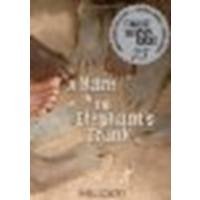What do you think?
Rate this book


Paperback
First published January 9, 2010
Before reading A Hare in the Elephant's Trunk, I really didn't know anything about the civil war in Sudan. I had never heard of the "Lost Boys" of Sudan. When I bought this book, I actually didn't even know it was about the war in Sudan. My school used to recommend a book each week, and this was one of the first ones that they recommended. I bought it a while ago, and started it when I was getting tired of fantasy and realized it was based on the true story of Jacob Deng, a boy who lived in South Sudan. When his village, Duk Padiet, was bombed, Jacob and his nephew Monyroor started on a long journey to Ethiopia. On their way, they found a line of hundreds of boys who had also seen their homes destroyed. They went to Pinyudo Refugee Camp in Ethiopia, but were forced out when Ethiopia's own problems intensified. Jacob and the Lost Boys walked for months at a time, with hardly any food or water. Jacob survived through horrifying circumstances, and he learned that his most important goal was to go to school so he could learn to solve problems without violence.
I learned so much from this book about the situation in South Sudan. In the beginning, I was deterred from reading it because [Jan L. Coates]'s writing style seemed awkward, as if she was trying hard to simplify her language for younger readers. However, as the book progressed the writing style improved and I became much more immersed in the story. Although the book is fiction, it is based on Jacob Deng's story and Coates's research about the war in Sudan and the Lost Boys. It was enlightening for me, especially since I had never learned about the Sudanese war except from short news stories. I would recommend this book for everyone, because it is about an important current event and illuminates the horrors that war places on children. Although the book is written for young readers, I would recommend it for both children and adults because the subject matter is certainly important for mature readers to learn about. In addition, some of the profits from each book sold go to Jacob Deng's foundation, Wadeng Wings of Hope, which raises money for children in South Sudan to get an education. For more information, go to www.wadeng.org. This book is also a strong reminder of why education is so important, so it is particularly good for students who lack motivation. Although I did not personally love the writing style, I really enjoyed this book and would highly recommend it.